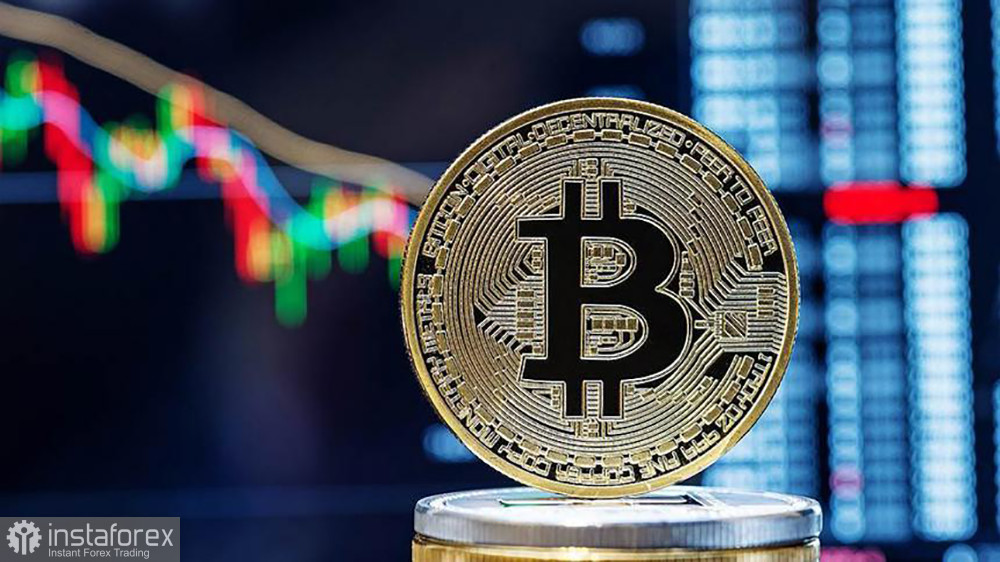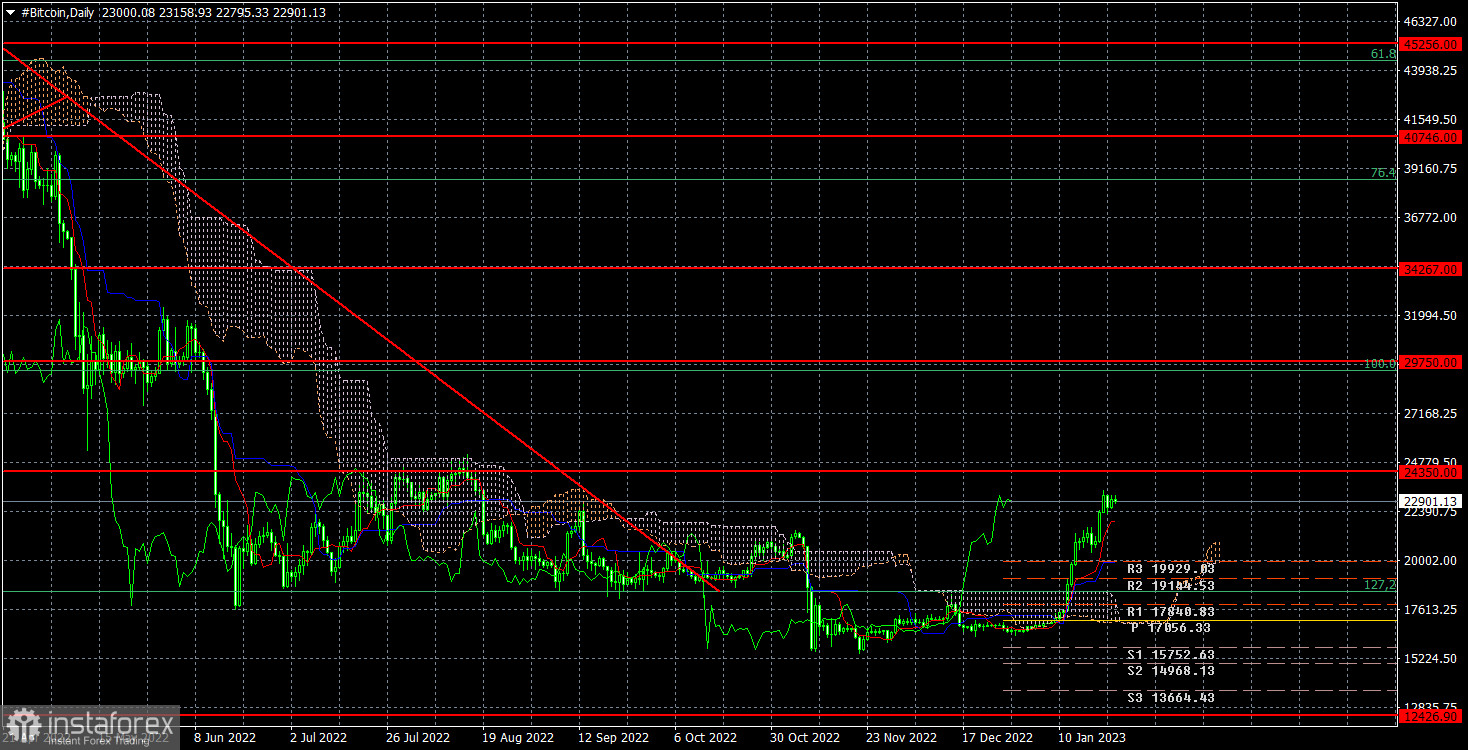
The price of the bitcoin cryptocurrency, which is now worth $23,000, is still rising. As you may recall, we stated that a "bearish" trend does not necessarily imply that bitcoin will continue to decrease. Any tendency can be corrected. The volatile cryptocurrency's price increase of $7,000 in a matter of weeks is also not very noteworthy. Previous rallies in Bitcoin have been comparable. The sole query is why bitcoin is expanding at this time, and does it make sense to investigate causes.
As we have already established, bitcoin can exhibit growth at any time, just like any other asset or money. Take a look at how the euro and the pound are developing right now. But despite this, the market drives up demand for them, and this is sometimes independent of structural or macroeconomic factors. Bitcoin can therefore increase merely due to technological factors. There are different variations. For instance, if inflation falls in the United States or the European Union, the growth of central bank rates may slow down in the ensuing months. This most prevalent theory, in our opinion, defies all logic, despite its current level of popularity. The US has experienced declining inflation for six months, and the Fed's major rate climb is slowing down, as was known a few months ago. The situation is the exact reverse in the European Union. The ECB will not slow down the pace of tightening monetary policy, inflation has only been slowing down for a few months, and Christine Lagarde mentions a potential new increase in the consumer price index (which, in theory, could provoke a stronger increase in rates). Inflation cannot, then, be used to explain the rise of bitcoin because it has not even started to fall in many nations. So, according to us, there is no relationship between the decline in inflation and the rise of bitcoin.

Perhaps the market is still anticipating the major central banks to stop hiking rates in 2023, but if the market has already begun a new "bullish" trend for bitcoin, it does not matter how high they will rise before then. Such "justifications," in our opinion, are merely an effort to explain why bitcoin started to gain popularity. After all, if it is expanding, you must somehow explain it and seem as though everything is going according to plan. As a result, it appears as if everyone forgot about other issues, like, for example, high-interest rates that will remain that way for a very long time, and instead quickly thought about inflation.
The decline to $12,426 is currently being postponed because the quotes for "bitcoin" have surpassed the threshold of $18,500 over the past 24 hours. The value of the coin as of right now is $24,350. Rebounding from this point can put bitcoin back on a downward trend; surpassing it can make the continuation of the "bearish" trend uncertain. We do not think that the "bullish" trend has already started, and we do not think that 2023 will see the end of bitcoin price declines. For the "bitcoin," the fundamental background is still fairly complicated.





















